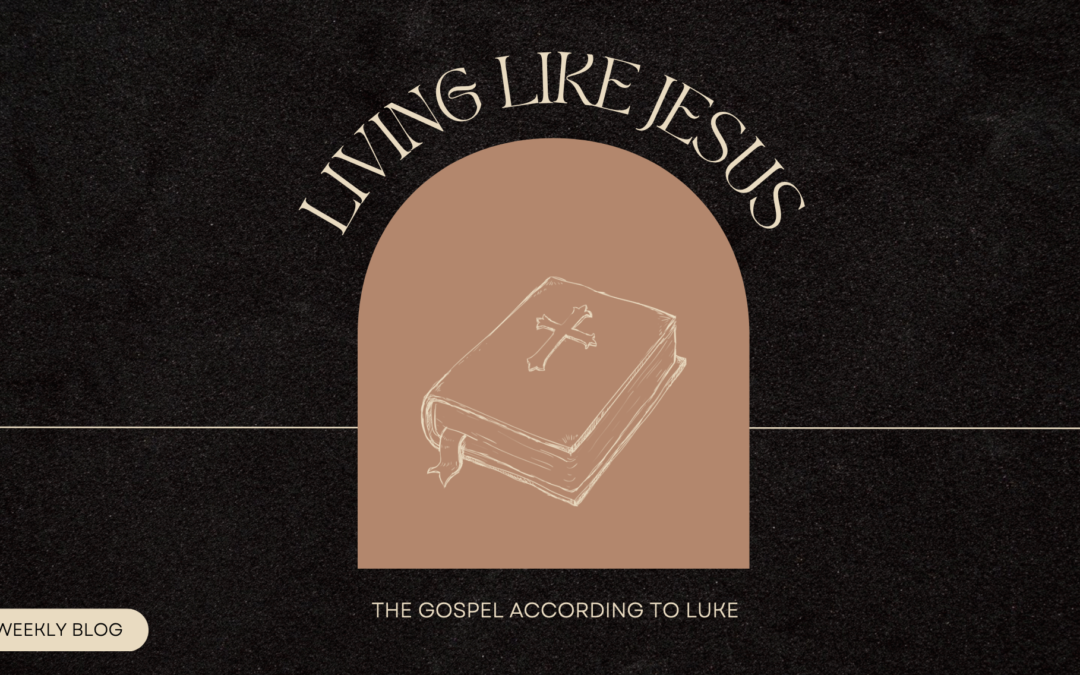LIVING LIKE JESUS: The Gospel of Luke—Week 2
Luke 12:13-34
One of the chief hallmarks of our sin nature is selfishness. We are preoccupied with ourselves and our desires, and that attitude is on full display in this week’s passage. Jesus is right in the middle of admonishing a crowd trampling each other to get to him when he is interrupted by a man demanding Jesus immediately settle a dispute between him and his brother over an inheritance. Though there is a cultural expectation for a respected teacher such as Jesus to arbitrate such a dispute, Jesus declines to do so. Instead, Jesus tells the crowd the parable of the rich fool, a parable which stresses the importance of pursuing God-dependency instead of self-sufficiency.
In the Genesis account of creation, God literally declares that it is not good for us to be alone. We are created to live in a relationship with God that is rooted in his generous grace and to reflect that same generosity in community with others. Yet the actions of the rich fool reflect an attitude that is just the opposite. While some might look at his actions and judge them to be prudent business decisions, such a reading misses the mark, as does a reading that supposes Jesus is condemning all saving or future planning. If you look at the explanation from Jesus that follows the parable, the heart issue becomes clear: self-sufficiency. The rich fool takes the actions he does in the parable—actions that show a total disregard for his workers and his neighbors and that would totally wreck the local economy—because he is led by a heart bent on self-sufficiency. He takes actions that are meant to ensure that he will never have to rely on God’s provision or the assistance of his community in the future. He cares little for what happens to others so long as he gets his.
While such a parable may seem like a harsh response to the request of the man regarding his inheritance, such is not the case. If we look at the greater context (both in the surrounding passages and in the cultural context in which this parable takes place), we see that Jesus’ primary concern is the heart attitude of the man who makes the demand of Jesus. You see, the demand made by the man is not a simple call for justice. In fact, it is quite the opposite. His desire to have the inheritance split is one that is self-serving and one that would have a devastating impact on his family for generations to come. In that day, national and familial identity was tied to the land. Thus, the cultural norm was for families to work together to avoid splitting inheritances because doing so would dilute the inheritance. In essence, this man is asking Jesus to use his authority to ratify his selfish desires. He is seeking total control of his future, no matter the cost.
When we pursue self-sufficiency like the rich fool and the man seeking to split his inheritance, it inevitably leads to insecurity and worry. We become anxious and insecure because at some point we must admit that our resources are not unlimited and no matter how much wealth we accumulate, we have no control over what tomorrow will hold. The anxiety of the self-sufficient heart will inevitably drive us towards a miserly attitude—we will fear being generous because true generosity requires us to give without hope of financial return or benefit. Jesus wants us to be freed from such anxiety. In this week’s passage, Jesus calls us to let go of control and lean into the goodness of God. He calls us to hold loosely to things that were never ours to begin with because the tighter we cling to things such as money or family or reputation, the more our anxiety is multiplied. It is only when we make Christ our treasure that true prosperity and peace is found.
Questions:
- Review the account of the first sin in Genesis 3. What are some of the ways Adam and Eve immediately moved from God-dependency to self-sufficiency?
- How do the actions of the rich fool seem to you? Do they appear foolish or prudent? Why? How does understanding the culture and scriptural context change your perspective?
- What are some of the things about which you are anxious? How might that anxiety be tied to self-sufficiency? How can letting go and trusting in God’s goodness help with that anxiety?






